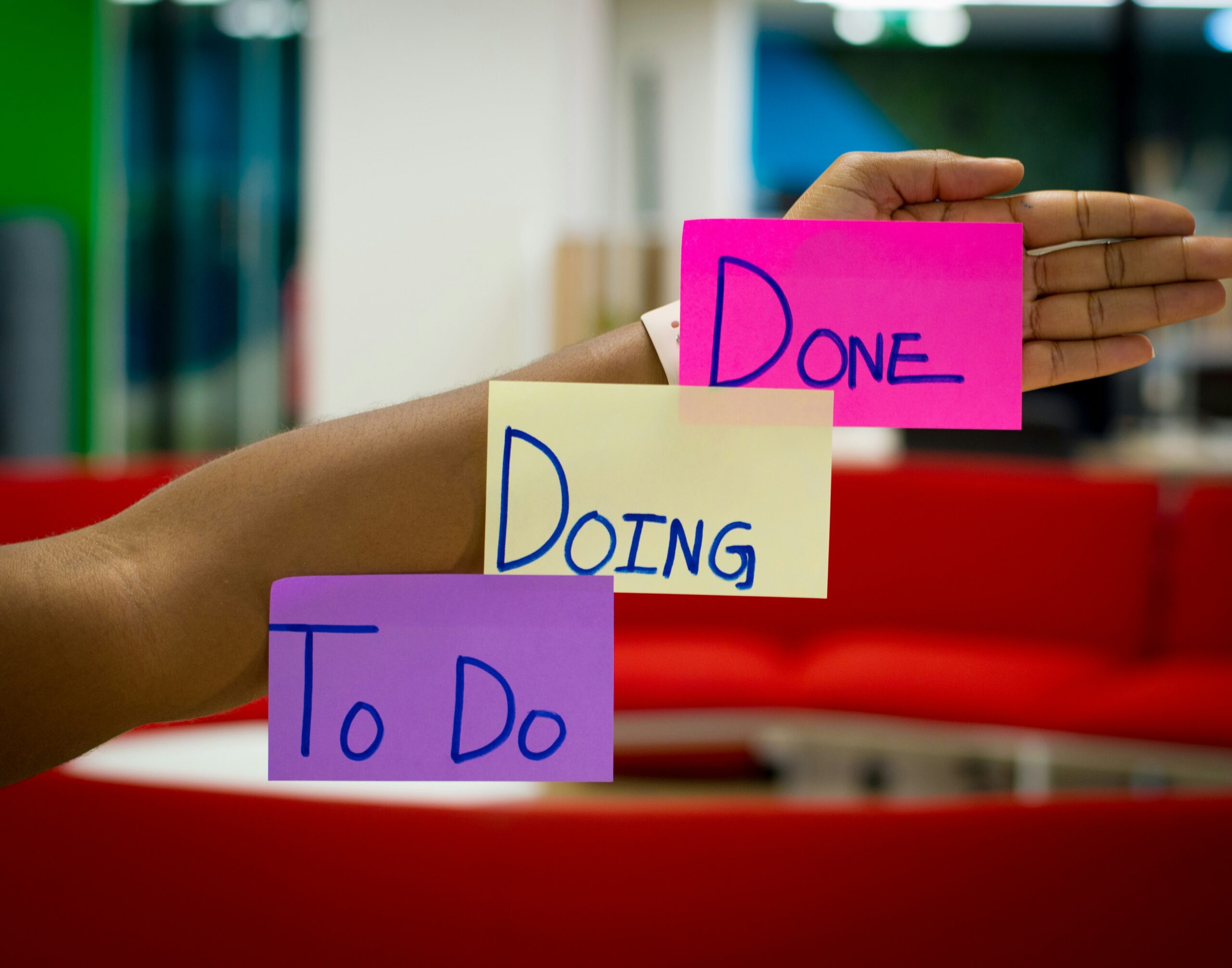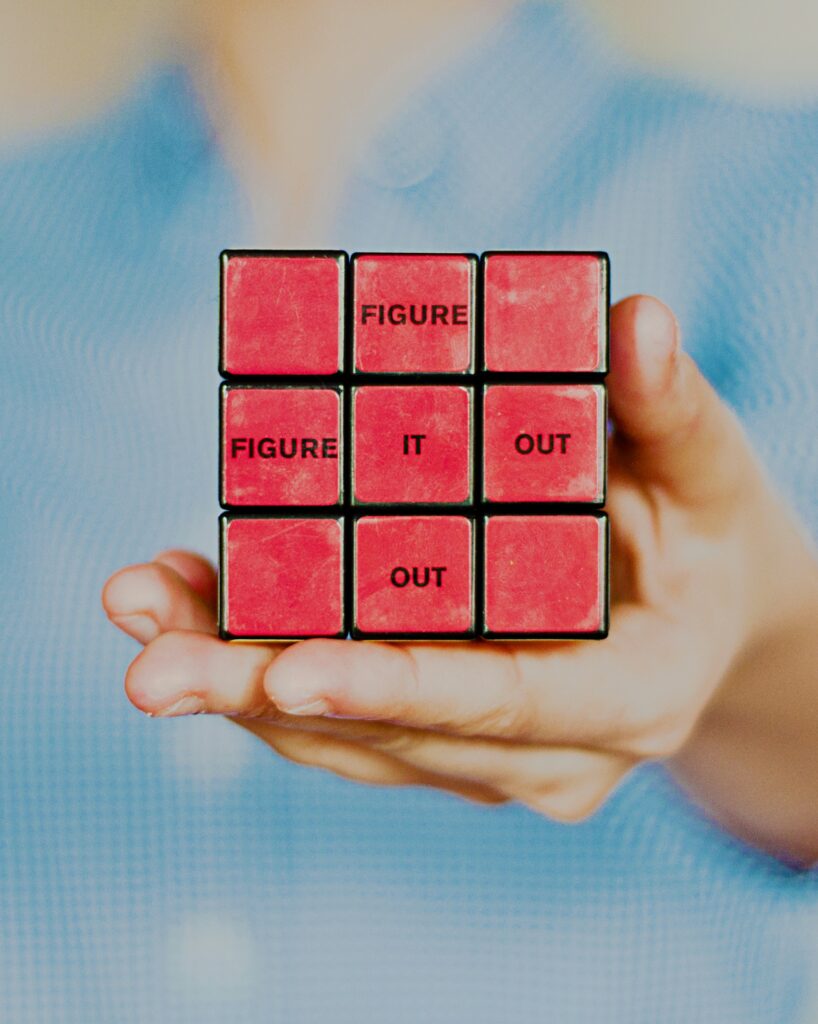
From Procrastination to Productivity: Unlocking Your Full Potential
Affiliate links may be used in this post. I may receive a small commission at no extra cost to you if you make a purchase through my affiliate link. Read my full disclosure policy here.
Are you tired of constantly putting off tasks and feeling like you’re not living up to your full potential? In this blog post, we’ll explore the common reasons for procrastination and unveil practical strategies to transform your habits and become the most productive version of YOU. It’s time to break free from the cycle of delay and unlock the key to achieving your goals with purpose and efficiency.
Start now and reclaim control over your time and energy.
Unraveling Procrastination: Decoding the Reasons Behind Delay
Procrastination often sneaks into our lives for various reasons. It could stem from fear of failure or perfectionism, where we delay tasks to avoid the discomfort of potential criticism or falling short of our high standards. Sometimes, it’s a result of feeling overwhelmed by the amount of a task or lacking clear direction, leading us to procrastinate as a coping mechanism.
Additionally, the instant gratification provided by distractions like social media or streaming services can easily derail our focus and prolong procrastination. By understanding the root causes of our procrastination tendencies, we can begin to address them effectively and reclaim control over our productivity:

-
Fear of Failure: Procrastination often stems from a deep-seated fear of failure or inadequacy. Individuals may hesitate to start or complete tasks due to concerns about not meeting expectations, receiving criticism, or facing disappointment. This fear can be paralyzing, leading individuals to avoid tasks altogether rather than risk falling short of set standards.
-
Perfectionism: Perfectionists set extremely high standards for themselves and their work, striving for flawless outcomes in everything they do. However, this can be overwhelming and unrealistic, causing them to procrastinate as they wait for the “perfect” moment or conditions to begin a task. Perfectionists may delay tasks indefinitely out of fear that they will not meet their own impossibly high expectations.
-
Lack of Motivation: Tasks that lack interest may fail to capture individuals’ attention and motivation, leading to procrastination. When the outcome or purpose of a task is unclear or unappealing, individuals may struggle to gather the motivation to start or complete it. Without a sense of purpose or excitement, tasks may stay on the to-do list indefinitely as individuals prioritize more immediately gratifying activities.
-
Feeling Overwhelmed: Tasks that appear daunting or complex can trigger feelings of overwhelm, making it difficult for individuals to know where to begin. When confronted with a large or unclear task, individuals may procrastinate as a way to avoid the discomfort of uncertainty and challenge. Breaking tasks down into smaller, more manageable steps can help alleviate feelings of overwhelm and make tasks more approachable.
-
Poor Time Management: Procrastination often arises from ineffective time management practices, such as failing to prioritize tasks or underestimating the time required to complete them. Without a clear plan or schedule, individuals may struggle to allocate time effectively, leading to last-minute rushes or delays. Procrastination becomes a habitual response to the pressure of approaching deadlines or the consequences of poor time management.
-
Distractions: In today’s digital age, distractions in every room, making it easy for individuals to procrastinate by engaging in activities that provide immediate gratification or entertainment. Social media, streaming services, and smartphone notifications can all divert attention away from important tasks, leading to procrastination and reduced productivity. Learning to manage distractions and create a focused work environment can help minimize procrastination.
-
Lack of Clear Goals: Without clearly defined goals or a sense of purpose, individuals may struggle to stay motivated and focused on tasks. Procrastination can arise when individuals lack direction or a compelling reason to engage with a task, leading to aimless avoidance. Defining specific, achievable goals can provide clarity and motivation, reducing the likelihood of procrastination.
-
Avoidance of Discomfort: Procrastination often serves as a coping mechanism to avoid uncomfortable emotions such as boredom, frustration, or anxiety. Individuals may delay tasks that evoke negative feelings or require effort, opting instead for activities that provide immediate relief or distraction. However, avoiding discomfort in the short term can lead to increased stress and anxiety in the long run, perpetuating the cycle of procrastination.
-
Low Self-Confidence: Procrastination can be fueled by self-doubt and a lack of belief in one’s abilities. Individuals may hesitate to start or complete tasks if they doubt their competence or fear that they will not meet expectations. This lack of confidence can erode motivation and self-esteem, leading to a cycle of avoidance and procrastination.
-
Short-Term Gratification: Procrastination often involves prioritizing short-term rewards or pleasures over long-term goals or responsibilities. Individuals may chose activities that provide instant enjoyment or relief rather than tackling more challenging or less immediately rewarding tasks. However, this tendency to prioritize short-term pleasure can hinder progress toward long-term objectives and contribute to procrastination.
-
Lack of Knowledge or Skills: Uncertainty about how to approach or complete a task can lead to procrastination, particularly if individuals feel unequipped to tackle the task effectively. Rather than seeking assistance or guidance, individuals may postpone action out of fear of failure or embarrassment. Procrastination becomes a way to avoid confronting and addressing gaps in knowledge or skills, perpetuating feelings of inadequacy.
-
Perceived Incompetence: Believing that no one else can perform a task better can lead to procrastination, as individuals may feel intimidated or reluctant to begin. This belief may stem from a desire to maintain a sense of control or superiority, even if it comes at the expense of productivity. Procrastination becomes a way to protect one’s ego and avoid potential challenges to one’s perceived competence.
-
Task Dislike: Simply not enjoying or finding satisfaction in a task can lead to procrastination, as individuals may prioritize activities they find more enjoyable or fulfilling. Tasks that are boring, tedious, or unpleasant may be put off indefinitely, as individuals seek to avoid discomfort or dissatisfaction. Procrastination becomes a way to preserve one’s mood and well-being, even if it means delaying necessary or important tasks.

Strategies for Enhanced Productivity
-
Set Clear Goals: Clearly defined goals provide a sense of direction and purpose, making it easier to prioritize tasks and take action. Break down larger goals into smaller, actionable steps to create a roadmap for success.
-
Create a Schedule: Establishing a schedule helps organize your time and ensures that important tasks are allocated sufficient attention and effort. Use a planner or digital calendar to schedule specific times for tasks, meetings, and deadlines, and stick to your schedule to maintain consistency and momentum.
-
Use Time Blocking: Time blocking involves dedicating specific blocks of time to focus on particular tasks or activities. By allocating dedicated time for focused work, you can minimize distractions and increase productivity. Use time blocking to create a structured routine that optimizes your workflow and efficiency.
-
Start Small: Overcoming procrastination often requires overcoming inertia and getting started on tasks. Begin by tackling small, manageable tasks that require minimal effort or time. Once you gain momentum, you’ll find it easier to transition to more challenging tasks.
-
Practice Self-Compassion: Be kind to yourself when you experience setbacks or difficulties. Acknowledge that everyone procrastinates at times and recognize that mistakes are opportunities for growth and learning. Cultivate self-compassion by treating yourself with kindness and understanding, especially during challenging moments.
-
Break Tasks Into Smaller Steps: Large or complex tasks can feel overwhelming, leading to procrastination. Break tasks down into smaller, more manageable steps to make them less daunting and easier to approach. Focus on completing one step at a time, celebrating your progress along the way.
-
Set Deadlines: Establishing deadlines for tasks creates a sense of urgency and accountability, motivating you to take action. Set realistic deadlines for tasks and projects, breaking them down into smaller milestones if necessary. Use deadlines to prioritize tasks and allocate time effectively.
-
Eliminate Distractions: Identify and minimize distractions in your environment to maintain focus and concentration. Turn off notifications, limit access to social media and other time-wasting activities, and create a dedicated workspace free from distractions. By creating a conducive environment for productivity, you can reduce the temptation to procrastinate.
-
Use Rewards and Consequences: Reward yourself for completing tasks or meeting milestones to reinforce positive behavior and motivate continued progress. Set up a system of rewards and consequences to create accountability and incentivize productivity. Celebrate your accomplishments and use positive reinforcement to encourage consistent effort.
-
Practice Mindfulness: Mindfulness involves staying present and aware of your thoughts, feelings, and surroundings. Incorporate mindfulness techniques into your daily routine, such as deep breathing, meditation, or mindful awareness exercises. By practicing mindfulness, you can reduce stress and anxiety, improve focus and concentration, and cultivate a greater sense of clarity and purpose.
-
Seek Support: Share your goals and progress with friends, family, or a mentor who can provide encouragement and accountability. Surround yourself with positive influences who support your efforts to overcome procrastination and achieve your goals. Seek guidance and advice from trusted individuals who can offer valuable insights and perspectives.
-
Break the Cycle: Procrastination often involves habitual patterns of behavior that perpetuate avoidance and delay. Break the cycle of procrastination by challenging negative thoughts and beliefs that contribute to procrastination. Replace self-limiting beliefs with positive affirmations and adopt a growth mindset focused on learning and improvement.
-
Develop Self-Discipline: Self-discipline is the ability to control your impulses and stay focused on your goals, even in the face of distractions or challenges. Cultivate self-discipline through consistent practice and reinforcement of positive habits. Set clear boundaries and stick to them, prioritizing tasks and responsibilities in alignment with your goals and values.
-
Use Visualization: Visualization involves mentally rehearsing successful outcomes and envisioning yourself achieving your goals. Use visualization techniques to imagine yourself completing tasks with confidence and competence. Visualize the benefits of being productive, such as increased confidence, satisfaction, and success, to motivate yourself to take action and overcome procrastination.
-
Reflect and Adjust: Regularly review your progress and reflect on what’s working and what’s not. Identify any obstacles or challenges that may be contributing to procrastination and brainstorm strategies to overcome them. Adjust your approach as needed to optimize your productivity and effectiveness, staying flexible and open to experimentation and learning.
By implementing these strategies consistently and proactively, you can develop greater self-awareness, improve your time management skills, and effectively combat procrastination to achieve your goals and aspirations.
What’s your biggest challenge when it comes to staying productive? And how you over come it? Please let us know in the comments below. This DAILY PLANNER, can also help you stay away from procrastination.
If you liked this article, you may also like THIS ONE!


